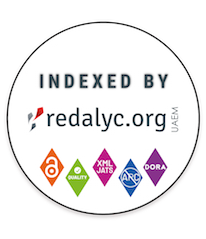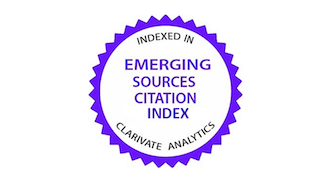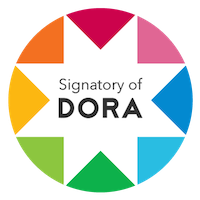Development of participative methodologies for genetic improvement of bean in Honduras.
DOI:
https://doi.org/10.15517/am.v12i2.17238Abstract
Even though it is recognized that traditional plant breeding approaches have been effective on increasing yields and solving pest problems that limit crop production, it is still argued that the levels of adoption, and expected impacts, have been limited. Small farmers who produced most of the basic grains are included under this context; they do not posses the resources to change their environment to obtain the yield responses that are expected from improved varieties with higher potential. However, in the case of beans in Central America, improved varieties developed by conventional plant breeding methods have been valuable in reducing the dissemination of diseases that could have caused severe yield reductions in the region, i.e. bean golden yellow mosaic. Participatory plant breeding (PPB), which involves an active farmer participation in the development of varieties for specific adaptation, is an alternative for increasing the access and adoption of improved varieties by small farmers who have limited access to improved technologies and/or use low inputs. In Central America, already exists some initiatives of PPB in bean and maize crops; regarding with these initiatives, the interests and expectations of farmers, organizations and donors have increased recently. This publication intents to provide some guidelines on the application of PPB approaches for the genetic improvement of the common bean; it is based in the experience obtained by breeders of the Bean Research Program of Zamorano, during the first two years of a project conducted in collaboration with technical personnel of a nongovernmental organization and farmers from various communities of Yorito and the Lago Yojoa in Honduras.Downloads
References
ASHBY, J.A., GARCÍA, T., GUERRERO M., QUIRÓS, C.A., ROA, J.I., BELTRÁN, J.A. 1995. Institutionalising farmer participation in adaptive technology testing with the “CIAL”. Londres, ODI Agricultural Research and Extension Network, Paper No. 57. 43 p.
BRIMM, C.A. 1966. Amodified pedigree method of selection in soybeans. Crop Sci. 6:220.
CECCARELLI, S., BAILEY, E., GRANDO, S., TUTWILER, R. 1997. Decentralized, participatory plant breeding: A link between formal plant breeding and small farmers. In: New Frontiers in Participatory Research and Gender Analysis: Proceeding of the International Seminar on Participatory Research and Gender Analysis for Technology Development. Cali, Colombia, CIAT. Septiembre 9-14, 1996. p. 65-74.
DE BOEF, W.S., BERG, T, HAVERKORT, Y B. 1995. Farmers, crops and landraces: Farmer’s role in the development and conservation of crop diversity. Internal discussion paper. CPRO-DLO Centre for Genetic Resources, The Netherlands, Wageningen. 27p.
HODGKIN, T., RAMANATHA RAO, V., RILEY, K. 1993. Current issues in conserving crop landraces in situ. In: On-farm Conservation Workshop. Bogor, Indonesia, 6- 8 Diciembre, 1993. p.10
SUBEDI, A., JOSHI, K., SHRESTHA, P., STHAPIT, B. 2000. Experiences in participatory approaches to crop improvement in Nepal. In: Friis, E., Sthapit, B. eds. Participatory approaches to the conservation and use of plant genetic resources. Roma, Italia, IPGRI. p. 90-102.
WITCOMBE, J., JOSHI, A. 1996. Farmer participatory approaches for varietal breeding and selection and linkages to the formal seed sector. In: Eyzaguirre, P., Iwanaga, M. eds. Proc. of a workshop on participatory plant breeding. 26-29 Julio de 1995. The Netherlands, Wageningen. p. 57-65.
Downloads
How to Cite
Issue
Section
License
1. Proposed policy for open access journals
Authors who publish in this journal accept the following conditions:
a. Authors retain the copyright and assign to the journal the right to the first publication, with the work registered under the attribution, non-commercial and no-derivative license from Creative Commons, which allows third parties to use what has been published as long as they mention the authorship of the work and upon first publication in this journal, the work may not be used for commercial purposes and the publications may not be used to remix, transform or create another work.
b. Authors may enter into additional independent contractual arrangements for the non-exclusive distribution of the version of the article published in this journal (e.g., including it in an institutional repository or publishing it in a book) provided that they clearly indicate that the work was first published in this journal.
c. Authors are permitted and encouraged to publish their work on the Internet (e.g. on institutional or personal pages) before and during the review and publication process, as it may lead to productive exchanges and faster and wider dissemination of published work (see The Effect of Open Access).



























